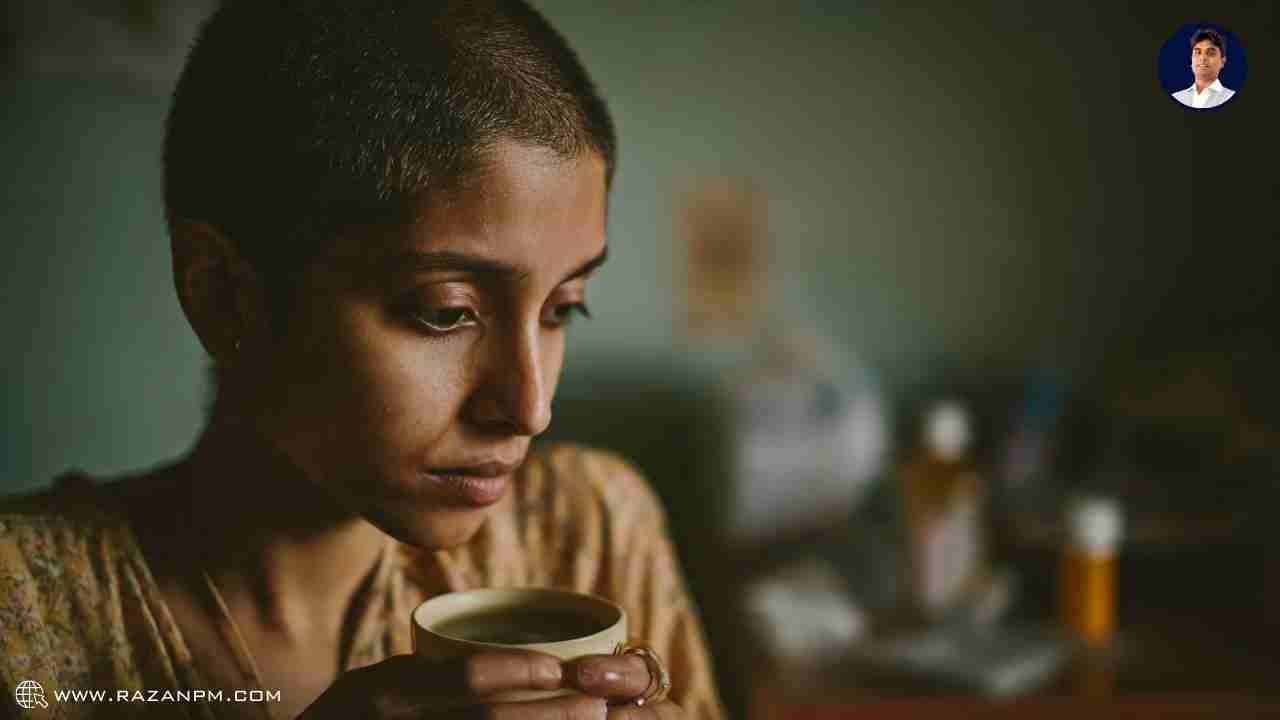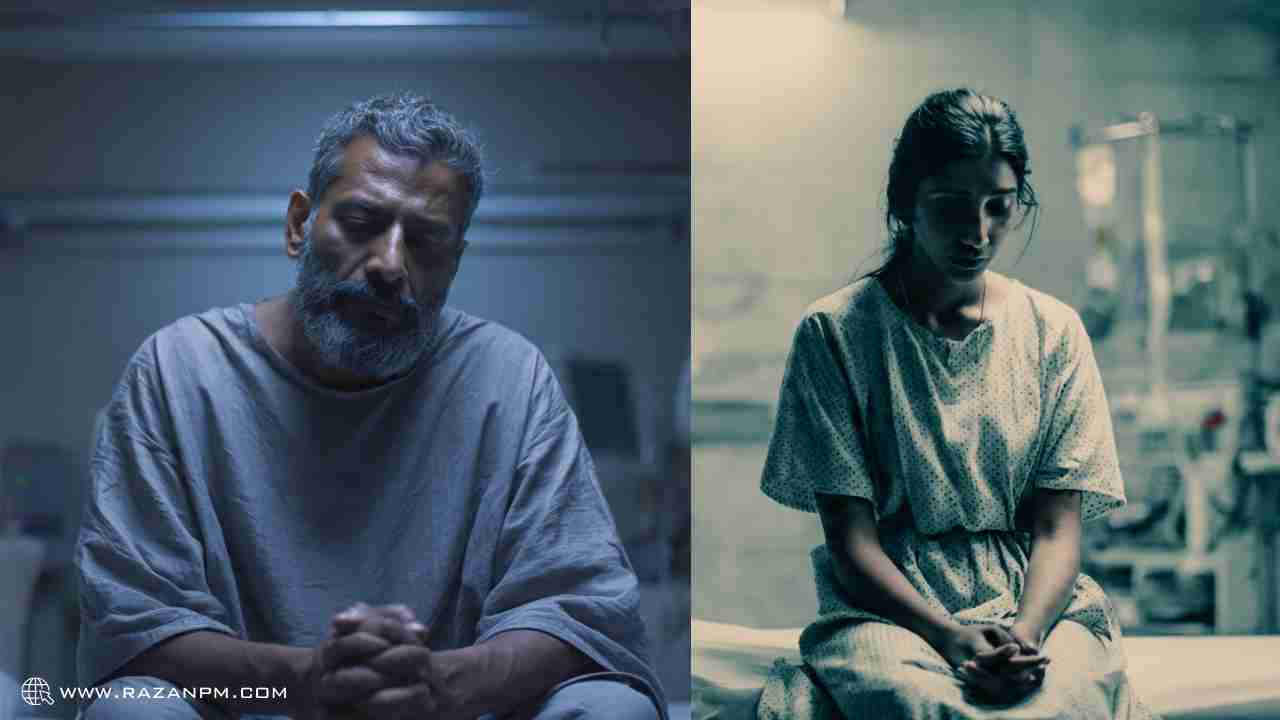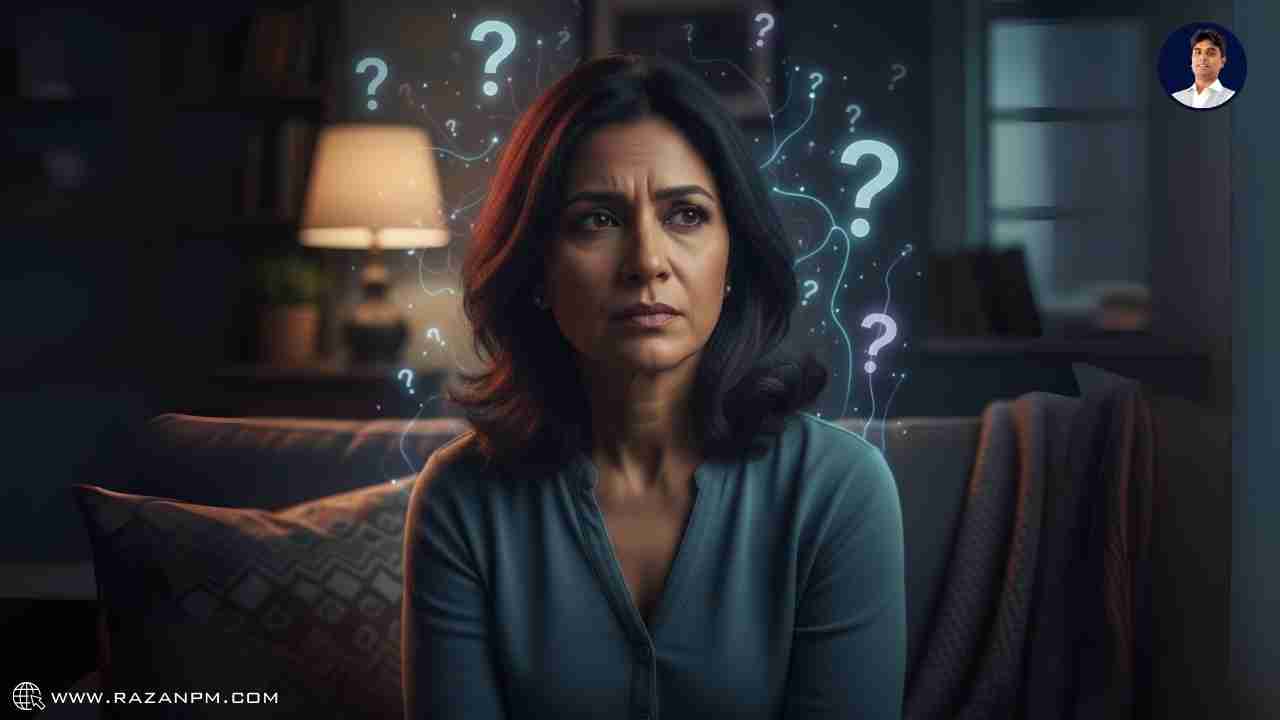Have you ever noticed how small things can spiral into big emotional waves? Imagine this: you’re making chai, and the milk boils over. Suddenly, instead of just cleaning the mess, your mind whispers, “Why can’t I handle even this? I’m failing at life.”
Funny, right? But this is how our thoughts sometimes trick us — turning spilled milk into an emotional earthquake. For cancer survivors, these small negative spirals often hide a much deeper pain: silent depression.
also read: 9 hidden signs she misses physicalaffection
Cancer survivors are often celebrated for their bravery. Friends and family say: “You fought cancer, you’re so strong!” And while that’s true, what we rarely talk about is the after-battle silence. When the chemo is over and the hospital visits stop, the emotional scars start speaking louder.

Many survivors tell me, “Sir, log toh kehte hain ab sab theek hai, but andar se mujhe lagta hai kuch missing hai.” (People say everything is fine now, but deep inside, I feel something is missing.)
This is the hidden depression no one talks about — masked behind smiles, small talk, and the pressure to “move on.”
also read: why gen z cant sleep anymore and theoverthinking trap?
If you are a survivor or you love one, maybe you’ve noticed these feelings:
Does this sound familiar? If yes, you’re not alone. Many cancer survivors experience depression — not in the loud, crying way, but in the silent, invisible way.
also read: 12 things women do when theyre touchdeprived

As a Govt.Recognized Counsellor & Mind Healer, here are the subtle yet powerful signs I’ve observed in my practice:
They laugh at family jokes, post happy pictures on Instagram, but inside, they’re battling deep sadness. This “masking” is one of the strongest signs of hidden depression.
Even after physical recovery, survivors feel drained — not just in body, but in mind. It’s not just tiredness, it’s emotional exhaustion.
A constant “what if” plays in their mind. What if cancer comes back? What if I don’t survive next time? This fear can lead to chronic anxiety and depression.
Things that once brought happiness — gardening, reading, family dinners — suddenly feel dull. This is a classic DSM-5 symptom of major depressive disorder.
Survivors may say, “Mujhe thoda rest chahiye”, but the truth is they’re slowly withdrawing from friends, social events, even family gatherings.
They sometimes ask: “Why did I survive, but others didn’t?” This guilt eats away at their peace and can trigger clinical depression.
A slight headache feels like a tumor returning. A cough feels like cancer relapse. This catastrophic thinking is a hidden depression marker.
They don’t always feel sad — sometimes they feel nothing. A blankness, a numb state, where even good news doesn’t excite them.
also read: why couples feel unheard and how tofix it fast
According to DSM-5 (Diagnostic and Statistical Manual of Mental Disorders), depression in cancer survivors often presents as persistent sadness, anhedonia (loss of interest), feelings of worthlessness, fatigue, sleep disturbances, and concentration problems.
The ICD-11 (International Classification of Diseases) also recognizes depression in patients with chronic or life-threatening illnesses, highlighting its impact on recovery, adherence to treatment, and quality of life.
In short: this isn’t just “in your head.” It’s a medically recognized condition.
also read: why generational habits shape how weescape?

📌 A study published in Psycho-Oncology Journal found that 1 in 4 cancer survivors experience major depressive symptoms, but most go undiagnosed.
📌 The National Cancer Institute highlights that untreated depression in survivors increases risks of poor health outcomes, reduced immunity, and slower healing.
📌 Research shows that cognitive behavioral therapy (CBT), NLP techniques, and mindfulness significantly reduce depressive symptoms in cancer survivors.
also read: 8 emotional changes in women withoutintimacy
I’ll share something personal. Years ago, I worked with a breast cancer survivor — let’s call her Meera. She told me:
“Everyone is congratulating me, Doc. But when I look in the mirror, I don’t feel like a winner. I feel broken.”
Her words stayed with me. Through NLP reframing techniques, guided therapy, and small healing practices, she slowly shifted. One day, she walked into my clinic glowing and said: “I finally feel like myself again — not just a survivor, but a human being with dreams.”
That’s when I realized: the silent depression needs just as much healing as the cancer itself.
also read: why chronic disease brings more thanjust pain?

👉 The Gratitude Reframe Journal
This simple practice begins shifting the brain from fear to appreciation, step by step.
also read: why actions speak louder than wordsin relationships?
Of course, this is just the beginning. Real healing needs guided techniques, deeper therapy, and structured NLP tools. A blog can plant the seed, but the real transformation happens with personalized support.
also read: 10 signs she is secretly starving for intimacy
If this feels familiar, you don’t have to figure it out alone. As a Govt.Recognized Counsellor & Mind Healer, I’ve walked with many survivors through this silent storm.
🌸 If you’re ready to heal your mind as deeply as your body, I’d love to support you.
Remember: Surviving cancer is only half the story — thriving is the next chapter. 💙
👉 Begin Your Journey with a 1 on 1 Consultation
👉 Begin Your Journey with a 1 on 1 Consultation

Answer: Hidden depression may show as fatigue, fear of relapse, loss of interest in daily life, emotional numbness, and isolation. Survivors often smile on the outside but feel heavy inside.
Answer: After treatment ends, many survivors face emotional emptiness, survivor’s guilt, and fear of recurrence. These factors trigger silent depression even when physical health improves.
Answer: Families can help by listening without judgment, encouraging therapy, and staying emotionally present. Small gestures like sharing meals or regular check-ins reduce loneliness.
also read: why illness leaves more than justphysical scars?
Answer: Therapies like Cognitive Behavioral Therapy (CBT), NLP reframing, mindfulness, and journaling are effective in reducing depressive symptoms and rebuilding emotional strength.
Answer: If sadness, fatigue, or fear lasts more than two weeks, or daily functioning is affected, survivors should consult a psychologist for guided support.
